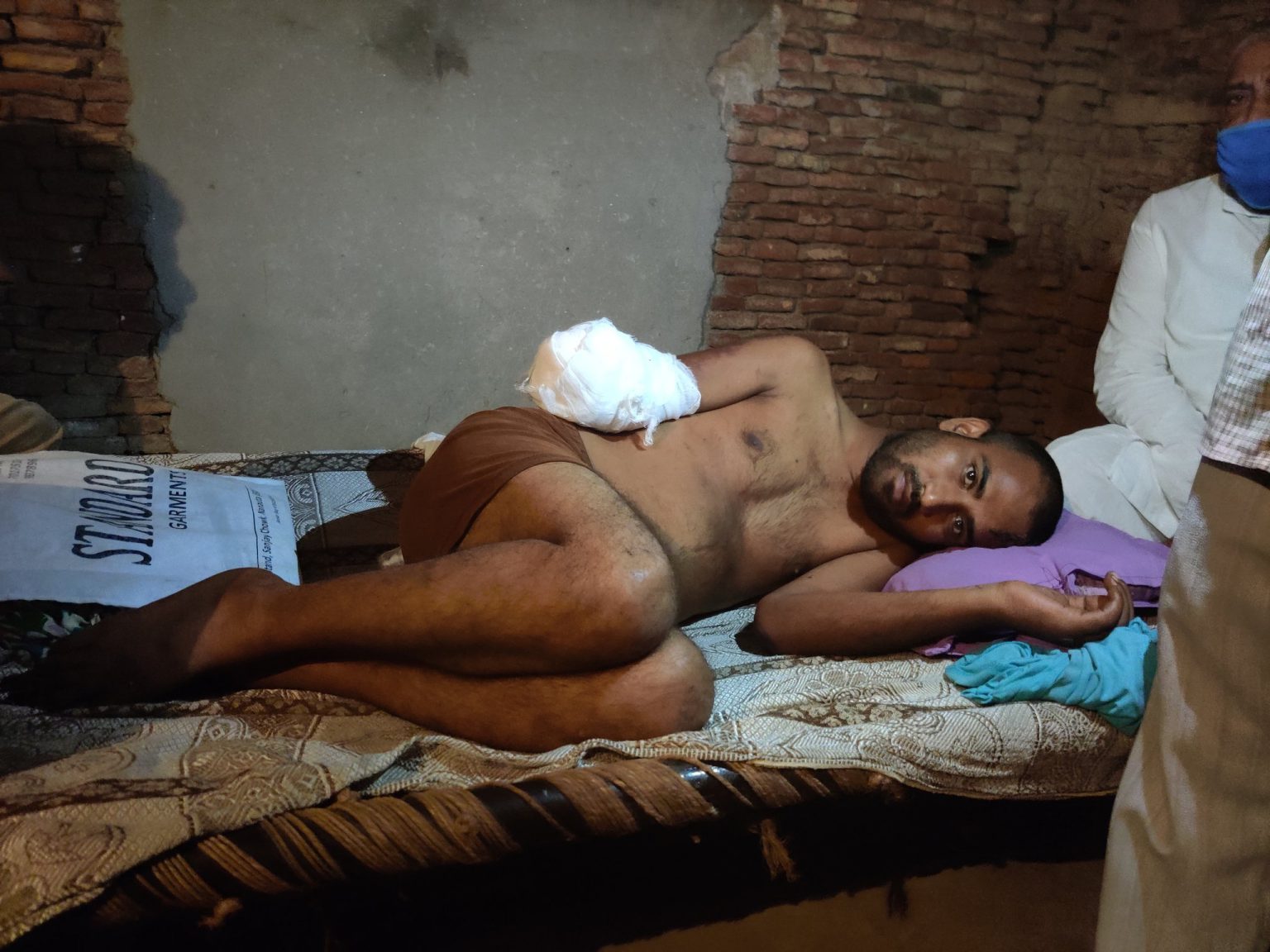
By Zafar Aafaq | Clarion India
The coronavirus-induced lockdown forced him to live in penury. So, on August 23, Akhlaq Salmani, 28, a trained hairdresser, left his hometown of Nanauta in West Uttar Pradesh in search of work.
He reached Panipat, a town in Haryana on the Delhi outskirts. Unable to find an accommodation, he entered a public park in Kishanpura area to relax for some time. Minutes later, two men came and asked his name. When Akhlaq told them that he was a Muslims, they thrashed him, and fled.
A couple of hours later, Akhlaq felt thirsty and roamed around in search of water. He reached at the doorstep of a house and asked for water. “As soon as he extended his hand, the inmates pulled him in, and locked the door. Then they beat him ruthlessly,” his 38-year-old brother Ikram, also a hairdresser, said.
“The attackers were three men and two women. They used sticks, clubs and a brick to bash up Akhlaq. His whole body is full of bruises even now. They used a chainsaw to cut his right arm which had an indelible mark of ‘786’ on the upper side of the hand.”
Many Muslims in India use ‘786’ as a mark of good omen which is associated with Muslim identity in films and popular culture.
The attackers dragged the injured hairdresser to a nearby railway track and left him there.
At around 5 am, Akhlaq regained consciousness and asked a passer-by for help; he made a call to the family in his hometown. They then informed the police in Panipat. At 7 am, a policeman reached the spot and then, after nearly one hour, he was taken to a hospital in Panipat.
After first aid, the hospital referred him to B D Sharma Institute of Medical Sciences in Rohtak for better treatment where he remained admitted for three days. “His condition was serious,” Ikram says. The discharge card from Rohtak hospital reads, “Traumatic amputation below elbow.”
The family says the police are treating it as a case of a rail accident. “It is a case of hate crime,” says Ikram who gave the police the photos of the accused and showed the police the house where his brother was attacked. He says the people who cut his hand were the same who attacked him in the park. “They attacked with a plan.”
Ikram has visited Kishanpura multiple times since then. “The locals who are strangers to me helped me and gave me information about the incident.”
“Initially the police were telling us that this is a case of a rail accident and are trying to close the case,” Ikram says, adding, “Police tried to mislead us.”
He said the police behaviour was unruly. “The police men at Chandni Bagh misbehaved with me.”
But about two weeks later, the General Railway Police Station, Panipat filed the First Information Report under Zero FIR. A copy of FIR dated 07, September, 2020 invokes Sections 323, 326, 34 on the basis of Akhlaq’s complaint. But the family demands that the police should file the case for attempt to murder.
Akhlaq’s severed hand is missing. The police have told the family that they were unable to find it near the railway track. “The police are not even trying to find the missing arm.”
Ikram said the police are asking the family to go for a compromise. “Sub-inspector of the police station asked me to not raise hue and cry,” he said, “they (the accused) had come to the police station and they wanted to negotiate a compromise. It would be better for you to compromise.”
Ikram asserted: “We do not want any compromise. We want justice, only justice.”
He says he has spent all his money on his trips to Panipat to find the attackers. “He was attacked because he is a Muslim,” Ikram says, “They severed his hand because of the 786 mark.”
This story first appeared on clarionindia.net

